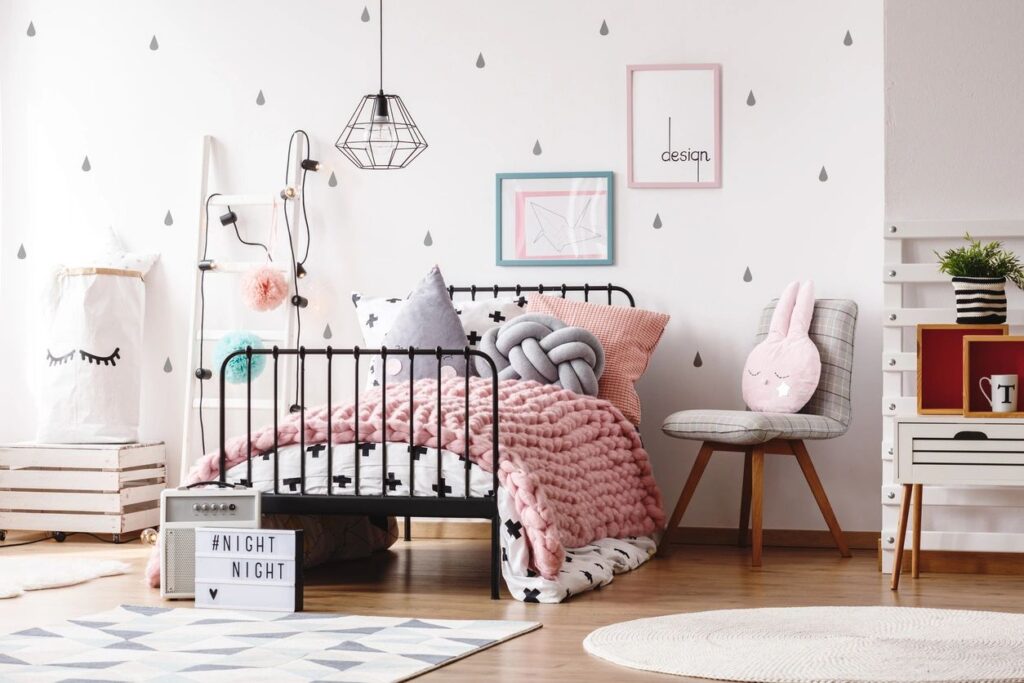
As a therapist, I understand the importance of a good night’s sleep on mental health. Problems falling asleep or staying asleep are common issues my clients share with me. Children and teens talk about having a hard time falling asleep because of overthinking, worrying, or difficulty relaxing. Parents share concerns about their child’s moods, school performance, or feelings of anxiety. We know that sleep is important to our overall health. By improving a child or teen’s sleep, we may also be improving their mood, concentration, and anxiety levels. Read on for some helpful tips on helping your child get a better night’s sleep.
1. Encourage Physical Activity
Research shows that regular physical activity contributes to better sleep quality and overall health. Whether it’s playing outside with friends, playing sports, swimming, or going for a family walk, physical activity can expend energy and promote better sleep. It can also be beneficial to get exercise earlier in the day and not too close to bedtime.
2. Be Aware of Caffeine
Caffeine can interfere with sleep, according to research from the Journal of Clinical Sleep Medicine. I recommend limiting your child’s intake of caffeinated beverages like soda or energy drinks, especially in the afternoon and evening. If possible, consider eliminating caffeine entirely. In addition, be aware that some snacks and medications may also contain hidden sources of caffeine.
3. Create a Sleep-Friendly Environment
Make your child’s bedroom a cozy and calm space. Dim the lights and use lamps. Keep the room at a comfortable temperature. Minimize noise and distractions. I recommend that your store their devices (phone, iPad, or laptop) in another room to reduce temptation.
You might think about investing in blackout curtains or a white noise machine to create a soothing atmosphere. Also, some people find aromatherapy machines with scents like lavender to be calming.
Additionally, some people find a clean and organized space to be relaxing. You might help your child to tidy their room regularly… perhaps building that into their bedtime routine!
4. Establish a Consistent Bedtime Routine
One of the most effective ways to promote healthy sleep habits is to establish a consistent bedtime routine. A routine helps signal your child’s brain that it’s time to wind down and prepare for sleep. It can include activities like taking a bath or shower, brushing teeth, reading a book, and practicing relaxation techniques.
5. Limit Screen Time Before Bed
The blue light emitted by electronic devices can interfere with your child’s sleep patterns. According to recent research, 90% of studies found an association between screen use and delayed bedtime and/or a decreased total amount of sleep. Encourage your child to disconnect from screens for at least an hour or two before starting their bedtime routine. Instead, encourage activities that promote relaxation, such as reading, engaging in quiet play, coloring or drawing, and journaling.
6. Set a Regular Sleep Schedule
A consistent time to go to sleep and wake up is important for regular, quality sleep. This helps regulate the body’s internal clock (or circadian rhythms), making it easier to fall asleep and wake up naturally.
What’s more, the benefits of a regular sleep schedule also extend to our moods. Irregular sleep schedules can lead to anxiety, depression or mood issues, and other health problems. So, encourage your child or teen to go to bed and wake up at the same time every day, even on weekends.
7. Aim for Enough Sleep
We need different amounts of sleep based on our age. And while everyone is different, you can support your child in planning how they can get the right amount of sleep for their body.

The American Academy for Sleep Medicine recommends that preschoolers (ages 3 to 5) need on average 10 to 13 hours of sleep (which may include naps). School-aged kids (ages 6 to 12) need 9 to 12 hours of sleep on average. And teens typically need between 8 and 10 hours of sleep a night.
8. Listen to Something Soothing in Bed
Sometimes our brains distract us and keep us awake when we’re trying to fall asleep. Many kids and teens find that listening to calming music, white noise machines, or audiobooks can help them fall asleep faster. I also recommend Sleep Stories through apps like Calm or Headspace. Sleep Stories can be about a range of topics and are designed to help people fall into a restful sleep.
Remember, these are just a few tips that can help with ensuring your child or teen gets healthy sleep. Some children or teens may have more difficulties with sleep or other difficulties that may get in the way of sleep. If you have concerns about your child’s sleep, mental health, or overall well-being, I recommend you reach out to their pediatrician, a licensed professional counselor, or other trusted professional. They can assess your child’s needs and provide tailored recommendations and interventions to support their health.
If you are interested in learning more or working with me, click here for more information or email me at megan@meganvogelscounseling.com.

